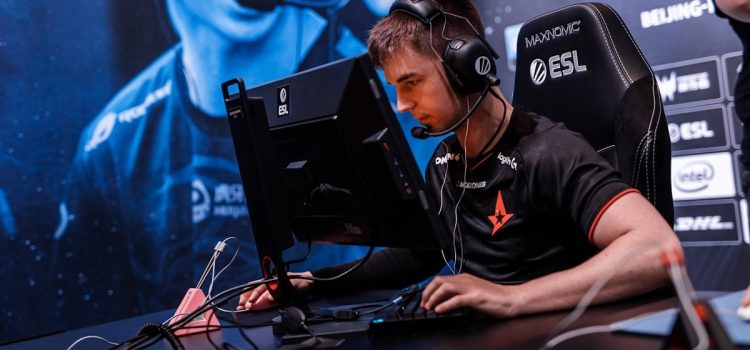
Introduction
In recent years, the world of esports has undergone a dramatic transformation. What was once a niche pastime has evolved into a multi-billion-dollar industry, attracting millions of viewers and participants worldwide. As the competitive landscape of esports continues to expand, so too does the demand for skilled professionals who can guide and mentor players to achieve their full potential. Enter the world of esports coaching, a profession that is rapidly gaining recognition and respect in 2024.
The Evolution of Esports Coaching

The rapid growth of esports has led to the emergence of coaching as a vital component of team success. Just as traditional sports have long relied on coaches to enhance team performance and strategy, esports organizations are recognizing the value of coaching. In 2024, we see a variety of coaching roles, from game-specific strategists to mental performance coaches, each contributing to a team’s overall success.
-
From Casual Mentoring to Professional Coaching
The concept of coaching in esports is not entirely new. In the early days of competitive gaming, experienced players often took on the role of mentors, offering advice and strategies to their less experienced peers. However, as the stakes in esports grew higher, the need for formal coaching became apparent. Today, esports coaches are highly trained professionals who bring a wealth of knowledge and expertise to their teams.
-
The Role of Technology
One of the key factors driving the growth of esports coaching is the advancement of technology. High-speed internet, sophisticated gaming platforms, and powerful analytics tools have revolutionized the way coaches train and develop players. In 2024, immersive theaters and movie-watching techniques are at the forefront of this technological revolution.
The Role of Parents in Esports Coaching
As esports gain popularity, parents are increasingly becoming involved in their children’s gaming pursuits. Many parents now recognize the potential career opportunities in esports and actively support their children’s involvement. This support can include helping players find coaching services, funding training programs, or simply attending events. Parental guidance is crucial in ensuring young gamers maintain a healthy balance between gaming and other aspects of their lives, such as academics and social activities.
Immersive Theaters and Movie Watching in Esports Coaching

-
The Concept of Immersive Theaters
Immersive theaters are specialized environments designed to provide a fully immersive experience for viewers. These theaters utilize advanced audio-visual technology, including high-definition screens, surround sound systems, and virtual reality (VR) headsets, to create a lifelike and engaging atmosphere. In the context of esports coaching, immersive theaters offer a unique and effective way to analyze gameplay and develop strategies.
-
The Benefits of Movie Watching Techniques
Movie watching techniques involve the use of cinematic tools and methods to enhance the training experience. By analyzing gameplay footage in a manner similar to how film directors study movies, coaches can identify strengths and weaknesses, develop new strategies, and provide targeted feedback to players. This approach allows for a deeper understanding of the game and fosters a more collaborative and creative coaching environment.
Community and Networking Opportunities
The esports community is vibrant and continuously growing. Coaches, players, and fans often come together in various forums, tournaments, and online platforms to share insights and experiences. Networking within this community can lead to valuable opportunities for both aspiring coaches and players. Building relationships with industry professionals can enhance a coach’s career prospects and provide access to resources that might otherwise be unavailable.
The Impact of Immersive Theaters and Movie Watching on Esports Coaching

-
Enhanced Analysis and Strategy Development
One of the primary advantages of using immersive theaters and movie-watching techniques in esports coaching is the ability to conduct detailed and comprehensive analysis. Coaches can review gameplay footage in high definition, slow down or pause critical moments, and use VR technology to gain different perspectives. This level of analysis enables coaches to develop more effective strategies and provide precise feedback to players.
-
Improved Player Engagement and Learning
Immersive theaters create an engaging and interactive learning environment that can significantly enhance player engagement. The use of VR headsets and surround sound systems makes the experience more realistic and enjoyable, which can lead to better retention of information and improved performance. Additionally, the collaborative nature of movie-watching techniques encourages players to actively participate in the analysis process, fostering a sense of teamwork and camaraderie.
-
Real-Time Feedback and Adaptation
Another significant benefit of immersive theaters and movie-watching techniques is the ability to provide real-time feedback and make on-the-fly adjustments. Coaches can use these tools to conduct live reviews of matches, allowing players to immediately implement changes and see the results in real-time. This dynamic approach to coaching can lead to faster improvement and a more adaptive and resilient team.
Education and Training Programs
As esports coaching becomes more recognized, educational institutions are starting to offer dedicated programs. Universities and colleges are developing courses that cover game strategy, team management, and the psychological aspects of coaching. These programs equip aspiring coaches with essential skills and knowledge, making them more competitive in the job market. This formal education can also help elevate the profession’s credibility within the wider sports and gaming industries.
The Future of Esports Coaching

Looking ahead, the future of esports coaching appears bright. With the continuous evolution of the industry, coaches will need to adapt to new trends and technologies. As esports expand globally, opportunities for coaching will likely increase, allowing for more specialization and diverse roles within the field. Coaches who stay informed and flexible will be better positioned to succeed and contribute to the growth of the esports ecosystem.
-
Increasing Demand for Skilled Coaches
As the esports industry continues to grow, the demand for skilled coaches is expected to rise. Organizations and teams are increasingly recognizing the value of professional coaching in achieving success and maintaining a competitive edge. In 2024, esports coaching is not just a profession but a critical component of the esports ecosystem.
-
Opportunities for Specialization
The field of esports coaching is also becoming more specialized. Coaches can focus on specific games, genres, or aspects of performance, such as mental conditioning, physical fitness, or strategic planning. This specialization allows coaches to develop a deeper understanding of their chosen area and provide more targeted and effective training.
-
The Integration of Advanced Technologies
The integration of advanced technologies, such as immersive theaters and movie-watching techniques, is likely to continue shaping the future of esports coaching. As these technologies evolve, they will offer even more sophisticated tools and methods for analyzing gameplay, developing strategies, and enhancing player performance.
Analysis Table
| Aspect | Current Trends | Future Predictions |
| Demand for Coaching | Rapidly increasing due to industry growth | Projected to grow at a CAGR of 25% by 2030 |
| Skills Required | Game knowledge, communication, leadership | Emphasis on data analytics and technology usage |
| Technology Integration | Use of analytics tools and training software | Increased use of AI and machine learning in coaching |
| Career Pathways | Various roles emerging (head coach, analyst, etc.) | More structured programs and certification options |
Comparative Table: Traditional Sports Coaching vs. Esports Coaching
| Aspect | Traditional Sports Coaching | Esports Coaching |
| Game Knowledge | Sport-specific rules and strategies | In-depth knowledge of game mechanics |
| Communication | Face-to-face and team meetings | Digital communication (voice, video) |
| Career Stability | Established pathways and job security | Emerging profession with variability |
| Performance Metrics | Physical performance stats | Data-driven analysis of gameplay |
| Mental Health Focus | Growing awareness, still developing | Increasing emphasis on player well-being |
Conclusion
Esports coaching is a rapidly growing profession in 2024, driven by the increasing popularity of competitive gaming and the advancement of technology. The use of immersive theaters and movie-watching techniques is revolutionizing the way coaches train and develop players, offering new opportunities for analysis, engagement, and real-time feedback. As the esports industry continues to expand, the role of coaches will become even more critical, paving the way for a new era of competitive gaming excellence.










